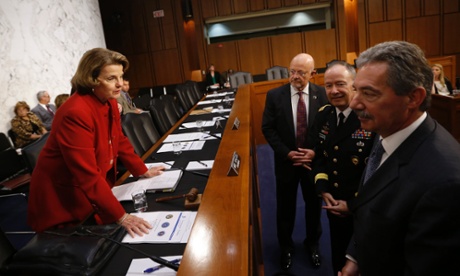STORY HIGHLIGHTS
- NEW: Senate rejects Obamacare filibuster, restores funding for health care program
- Senate approval of revised spending bill sends it back to the House
- House Speaker John Boehner faces a showdown with tea party conservatives
- Partial shutdown of government sent for Tuesday, unless spending plan approved
Washington (CNN) -- It's a congressional version of hot potato that will determine if a government shutdown begins as soon as Tuesday.
The Democratic-led Senate moved quickly Friday to pass its preferred short-term spending plan to keep the government funded beyond the end of the current fiscal year on Monday, tossing it back to the Republican-led House.
This sets up a weekend showdown between Republican House Speaker John Boehner and tea party conservatives in his GOP caucus, which demands that any spending measure must eliminate all money for Obamacare.
The Senate began Friday by voting to overcome a filibuster led by GOP Sen. Ted Cruz of Texas against the spending plan, clearing the way for another vote in which Democrats restored funding for Obamacare in the plan.
It then approved the revised spending measure -- called a continuing resolution -- through mid-November, 54 to 44.
Cruz waged a 21-hour floor speech this week against Obamacare, but more moderate Republicans rejected his tactics in voting with Democrats to move ahead on the measure.
Boehner indicated Thursday the House could revise the Senate's version and send that back, a move that Senate Majority Leader Harry Reid warned would result in at least the start of a government shutdown next week because of the time it would take the Senate to reconsider the measure.
Cruz, who became the face of the tea party push to defund Obamacare, said Friday he expected his GOP colleagues in the House to continue the fight by revising the spending plan, which would mean "this issue is coming back to the Senate."
House GOP split
Republican leaders in both chambers don't want a shutdown now over the spending issue, for political and negotiating reasons.
They fear the optics of Republicans being blamed for a shutdown, and also want to exert as much leverage as possible for the GOP's agenda at the upcoming deadline to raise the federal debt limit.
However, Boehner needs backing from the 40 or so tea party conservatives in the House in order to have a spending plan pass with full support from his Republican caucus.
Their opposition to the Senate version that had included funding for Obamacare would mean the measure could only pass the House with support from all Democrats and some Republicans, which would further weaken Boehner's already shaky leadership of his caucus.
The brinksmanship highlights the division within the Republican Party over how best to attack President Barack Obama's signature legislation that was passed by Democrats in 2010 and upheld by the Supreme Court. last year.
Tea party conservatives want to halt Obamacare now, just as full implementation of its individual health care exchanges begins in the new fiscal year starting Tuesday.
In the Senate, veteran Republican conservatives such as John Cornyn of Texas oppose the tea party strategy of linking the Obamacare funding to a possible government shutdown.
"There are some people across America that are so upset with Obamacare -- and I understand their frustration -- that they say we ought to shut down the federal government," Cornyn said, adding that the Congressional Research Service had determined the health care reforms would be funded even if there was government shutdown "because there are alternate sources of revenue that could be used to keep it going.
"So I say to my friends who say we ought to shut down the government to get rid of Obamacare that it won't work," he said.
Democrats slam GOP tactics
Democratic Sen. Tom Harkin of Iowa called on House Republicans to "be responsible and forget about kid's games like picking up their marbles and going home or throwing a temper tantrum or shutting down the government because you can't get your way."
On Thursday, Boehner had to delay their plan to introduce a bill to raise the nation's debt limit after conservatives complained the proposed package failed to include enough budget cuts and significant changes to entitlement programs.
The Obama administration says the debt ceiling must be increased by October 17 to ensure the government can pay all its bills.
Boehner and his top lieutenants initially hoped to move ahead with their proposal to permit Washington to borrow more money to pay its bills as soon as Friday.
The initial proposal by House GOP leaders, which would raise the debt ceiling for a year, included a lengthy list of GOP priorities including a one year delay of Obamacare, provisions to roll back regulations on businesses, tax reforms, and approval of the Keystone XL oil pipeline.
However, conservatives wanted more.
"It definitely has a lot of goodies in it, things that arguably would grow the economy and would arguably would generate more revenue," GOP Rep. Mo Brooks of Alabama told reporters, adding he was undecided on whether to support it. "Washington has a spending problem and this debt ceiling bill does not address the problem."
Another Republican, Rep. Cynthia Lummis of Wyoming, told CNN that she was also undecided but wanted to see deeper budget cuts on the measure.
"I came here to cut spending and to reduce the size of the federal government, so when those opportunities arise I want to take advantage of them," Lummis said.
When asked Thursday about the scope of cuts, Boehner told reporters that "in this bill, we have spending cuts and we have issues that will help spur more economic growth. We think the balance is correct."
Some House Republicans questioned the strategy of proceeding to the debt ceiling fight before Congress resolved the question on spending and the possible shutdown. They argued the GOP still had some leverage to force a change to Obamacare on that measure.
Obama: No negotations on debt ceiling
Meanwhile, Obama made clear that he rejected any political bartering on the debt ceiling.
"I will not negotiate on anything when it comes to the full faith and credit of the United States of America," he said Thursday in a speech on Obamacare in Maryland.
A proposal like the Republican debt ceiling measure amounts to trying to "blackmail a president into giving them some concessions on issues that have nothing to do with the budget," he said.
White House spokesman Jay Carney told reporters a one-year delay in implementing Obamacare's individual mandate for people to obtain health insurance would undermine a key provision of the program that prohibits the denial of coverage due to pre-existing conditions.
"The fact is you have to make the system work," Carney said, adding people with pre-existing conditions won't be denied insurance under Obamacare "because of the expansion of the number of people who will be covered and participate in these marketplaces provided by the Affordable Care Act through the individual mandate."
CNN Chief National Correspondent John King said Thursday that focusing on the debt ceiling was where House Republicans "wanted to wage this fight all along."
"They didn't want to get bogged down in the government shutdown fight, but a conservative revolt within the House Republican ranks forced them to get there," King said.
Analysts warn of severe economic impact from any doubt cast over whether the United States would fail to meet its debt obligations. A similar bout of congressional brinksmanship over the debt ceiling in 2011 led to the first-ever downgrade of the U.S. credit rating.
Obama cited that potential harm to a still sluggish recovery on Thursday, saying the world looked to America for economic leadership and stability.
"You don't mess with that," he said to cheers in Maryland.
However, King said the president previously negotiated on the need to increase how much the federal government can borrow to meet its obligations, such as in the 2011 showdown that led to deep spending cuts sought by Republicans.
"The Republicans think that is safer ground politically. The question is, can they actually get anything from the president?" King said.
Noting Obama has previously accused Republicans of having an unreasonable "my way or the highway" stance, he said the GOP can now accuse the president of doing the same thing by refusing to negotiate on the debt ceiling.




